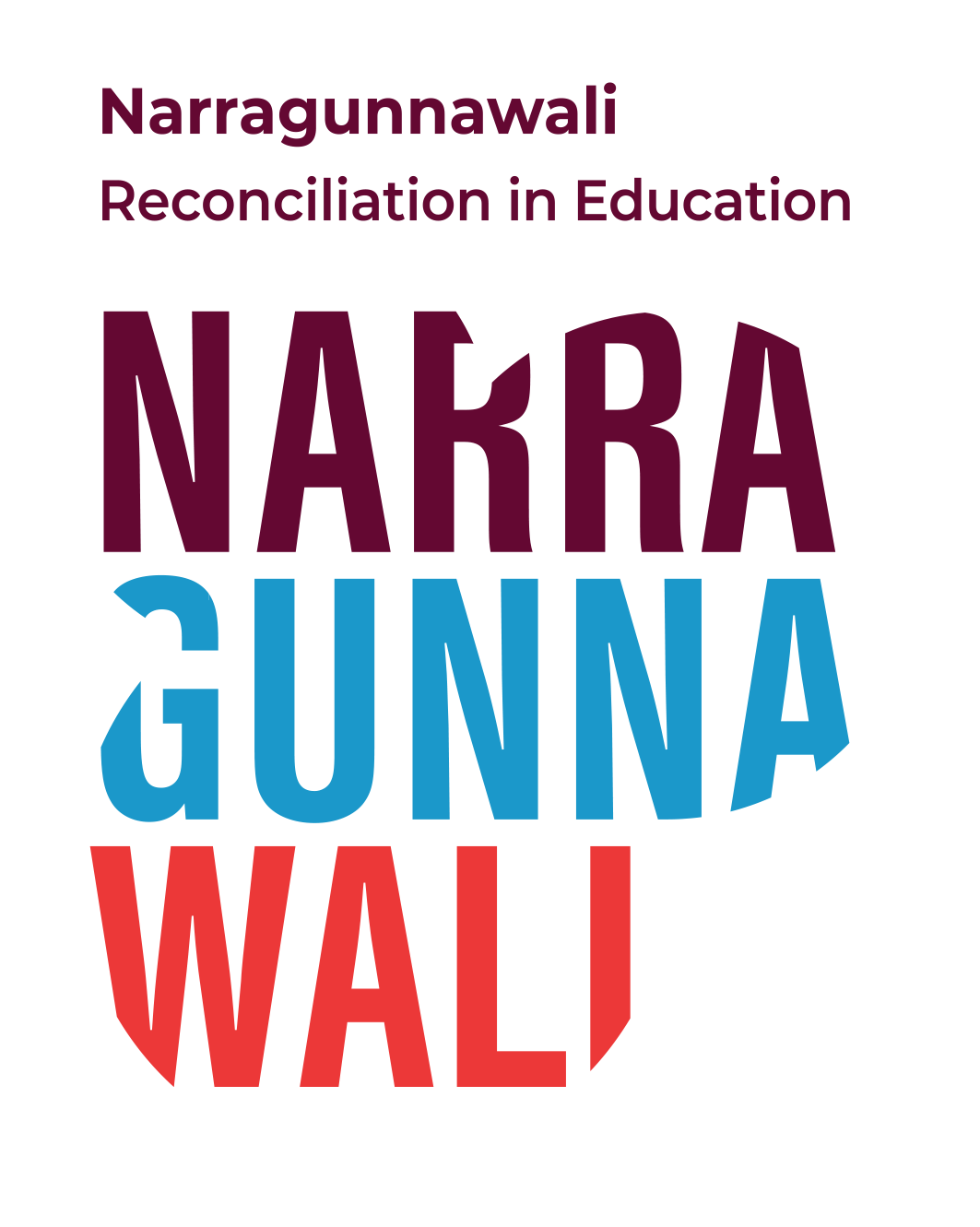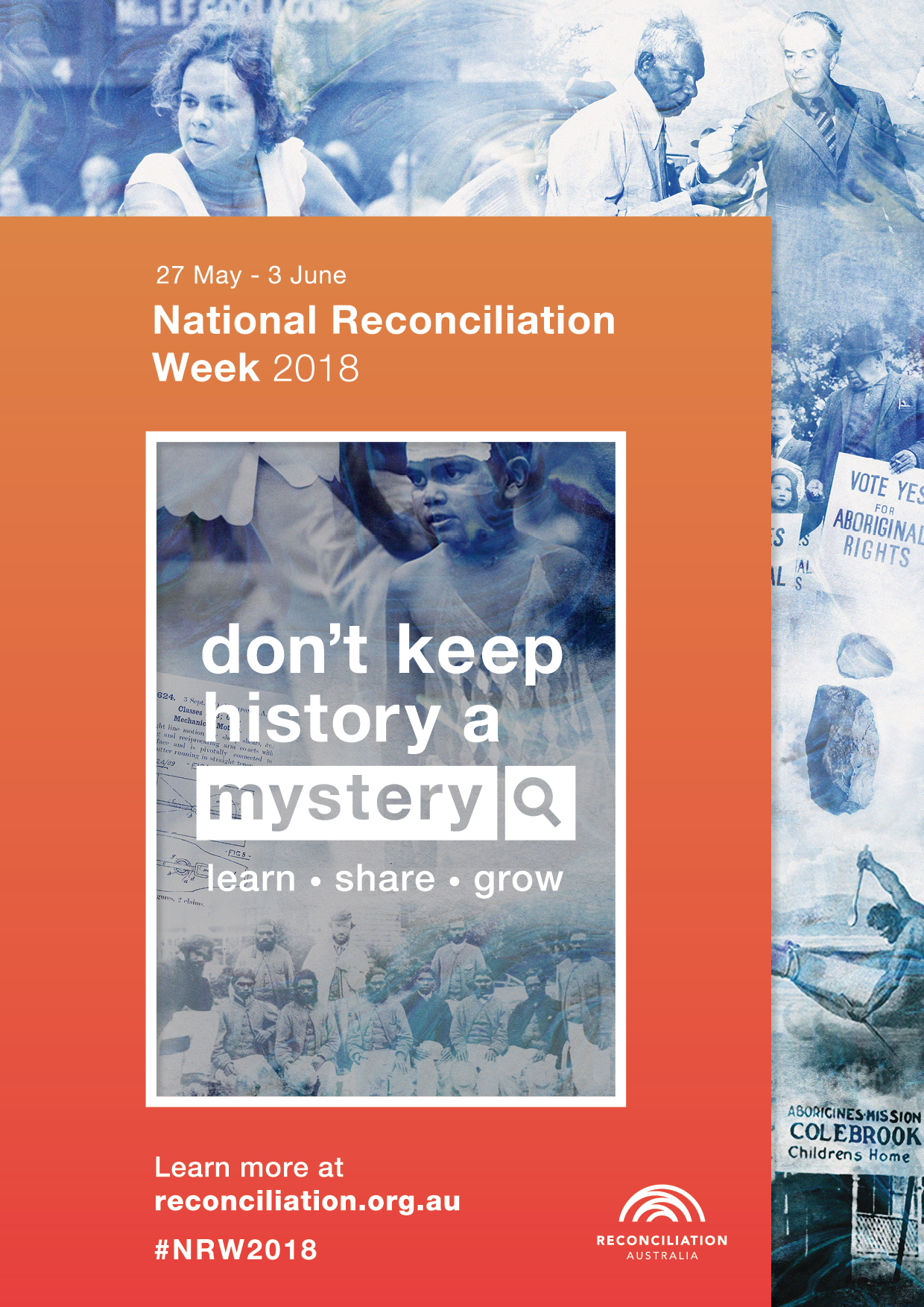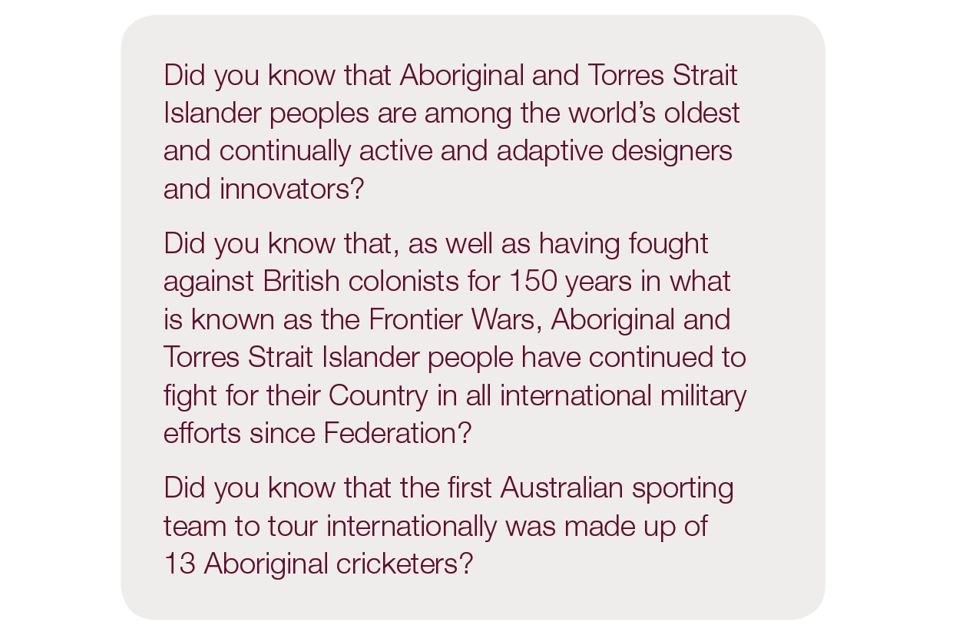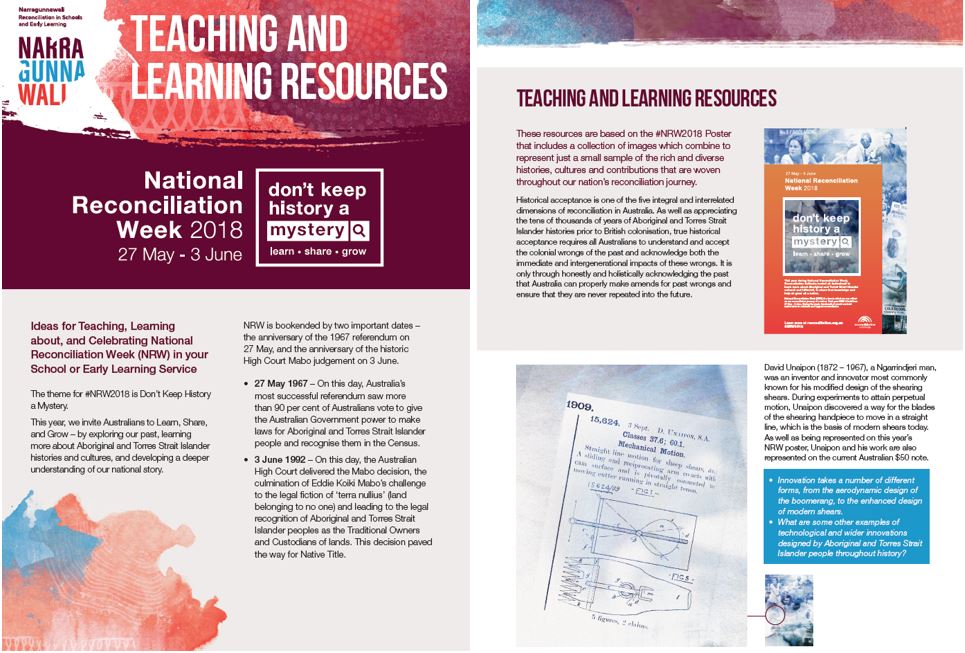#NRW2018: Don’t Keep History a Mystery
National Reconciliation Week is bookended by two important dates — the anniversary of the 1967 referendum on 27 May, and the anniversary of the historic High Court Mabo judgement on 3 June:
- 27 May 1967 – On this day, Australia’s most successful referendum saw more than 90 per cent of Australians vote to give the Australian Government power to make laws for Aboriginal and Torres Strait Islander people and recognise them in the Census.
- 3 June 1992 – On this day, the Australian High Court delivered the Mabo decision, the culmination of Eddie Koiki Mabo’s challenge to the legal fiction of ‘terra nullius’ (land belonging to no one) and leading to the legal recognition of Aboriginal and Torres Strait Islander peoples as the Traditional Owners and Custodians of lands. This decision paved the way for Native Title.
The #NRW2018 poster includes a collection of images that represent a small sample of the rich and diverse histories, cultures and contributions of Aboriginal and Torres Strait Islander peoples. Historical acceptance is one of the five integral and interrelated dimensions of reconciliation in Australia.
As well as appreciating the tens of thousands of years of Aboriginal and Torres Strait Islander histories prior to British colonisation, true historical acceptance requires all Australians to understand and accept the colonial wrongs of the past and acknowledge both the immediate and intergenerational impacts of these wrongs. It is only through honestly and holistically acknowledging the past that Australia can properly make amends for past wrongs and ensure that they are never repeated into the future.
Use the NRW poster as a stimulus for inspiring further research, reflection and discussion around Aboriginal and Torres Strait Islander histories of local and national significance to Australia’s reconciliation journey.
To support you in this process, download the #NRW2018 Teaching and Learning Resources and access the curriculum resource Let's Talk about the Theme for National Reconciliation Week, 2018 for early learning, primary and secondary classrooms.
For further resources regarding the relationship between historical acceptance and reconciliation see:
- The State of Reconciliation in Australia 2016 report (in summary or in full) and accompanying Discussion Guide
- Narragunnawali’s History resource guide (you might also like to consider the historical context of all subject/learning areas by accessing the full, cross curricula suite of Narragunnawali resource guides)




